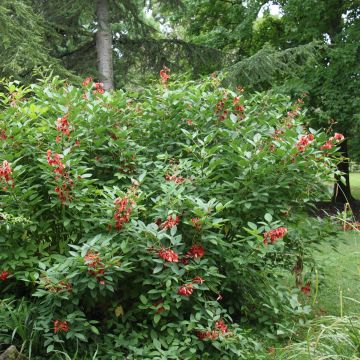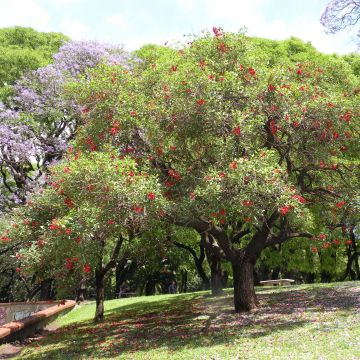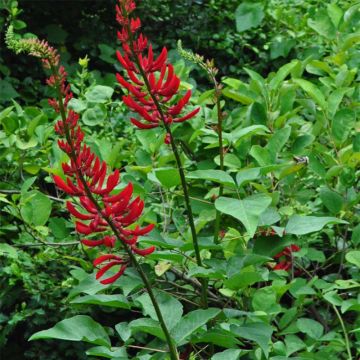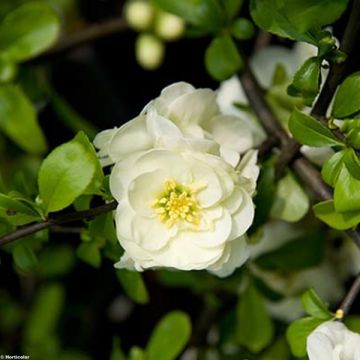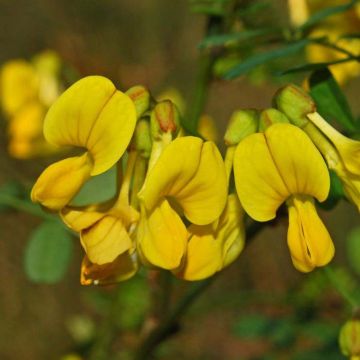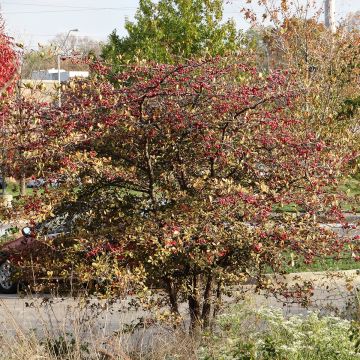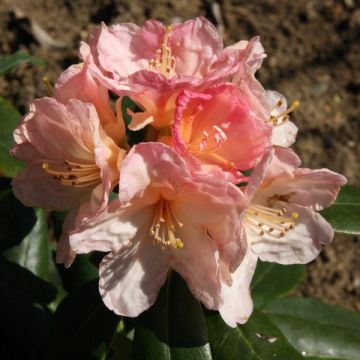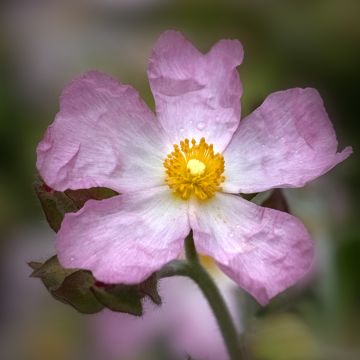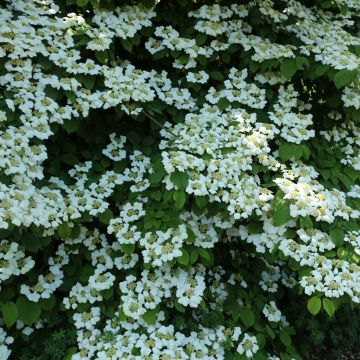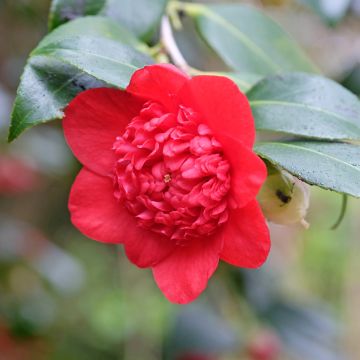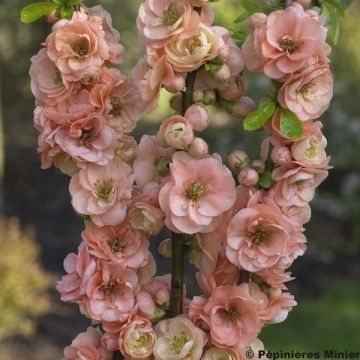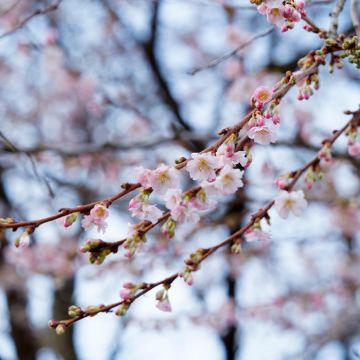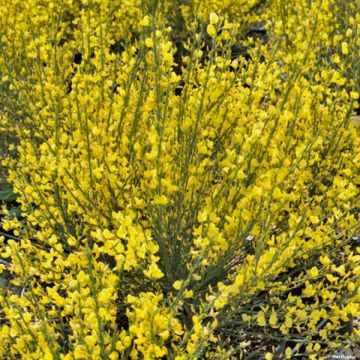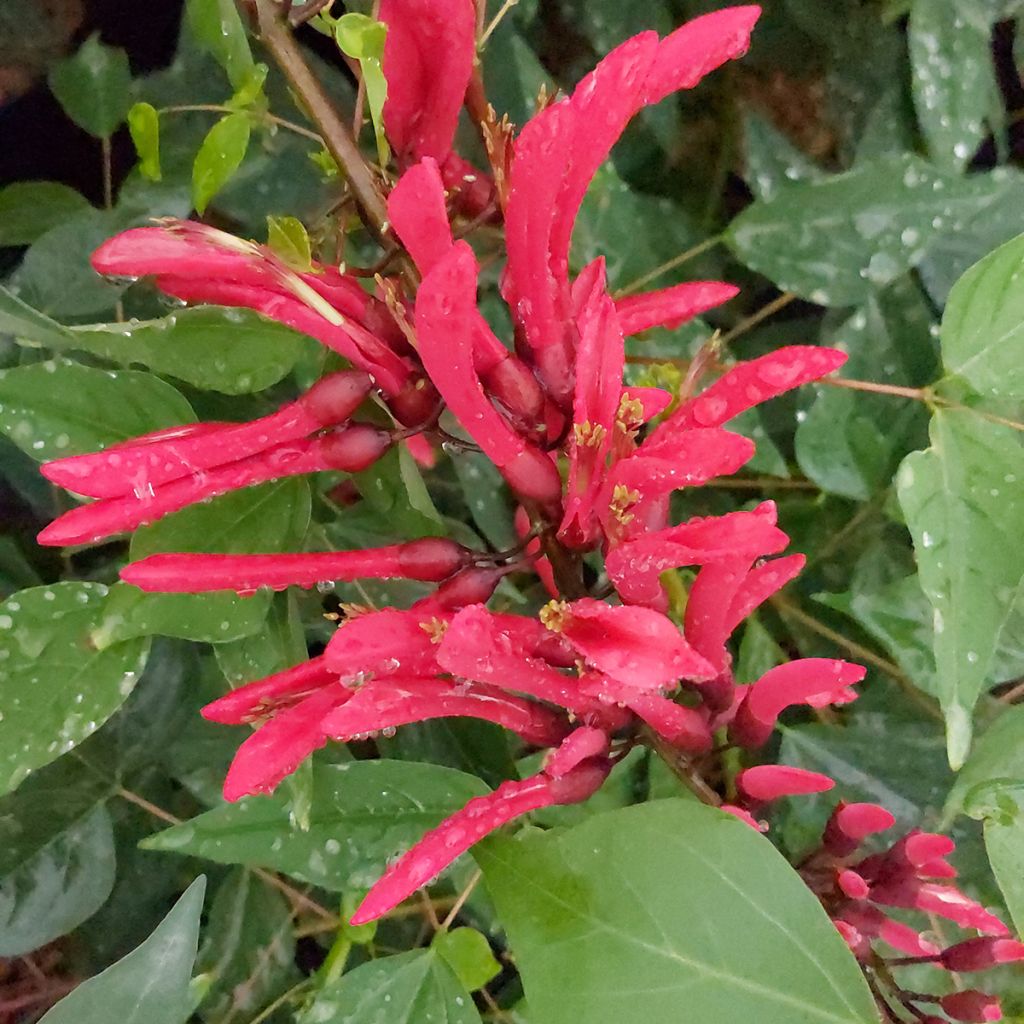

Erythrina Amélie Jeckert
Erythrina Amélie Jeckert
Erythrina crista-galii (x) herbacea Amélie Jeckert
Cockspur Coral Tree, Cry Baby, Coralbean
This item cannot be shipped to the selected country
Delivery charge from €5.90
More information
Delivery charge from €5.90
More information
Schedule delivery date,
and select date in basket
This plant carries a 24 months recovery warranty
More information
We guarantee the quality of our plants for a full growing cycle, and will replace at our expense any plant that fails to recover under normal climatic and planting conditions.
From €5.90 for pickup delivery and €6.90 for home delivery
Express home delivery from €8.90.
Does this plant fit my garden?
Set up your Plantfit profile →
Description
Erythrina 'Amélie Jeckert', or Hybrid Coral Tree, is an ornamental bush that doesn't fail to attract attention. Resulting from the cross-breeding of two Erythrina species, this variety stands out for its particularly generous red flowering and dense foliage. It is the result of the work of French breeder Amélie Jeckert, who successfully combined the qualities of Erythrina crista-galli and Erythrina herbacea to create this unique plant. Fans of exotic and colourful plants will appreciate its fast growth and ease of cultivation, whether in the ground in not too cold regions or in containers elsewhere.
Erythrina 'Amélie Jeckert' belongs to the Fabaceae family (formerly legumes). This hybrid bush has inherited the best characteristics of its two parents native to South America. Its spreading and bushy habit allows it to reach a height of 2 to 3 metres with a spread of up to 2 metres. Its fast growth is useful for quickly creating an exotic setting in the garden or on the terrace. The flowers of Erythrina 'Amélie Jeckert' are its main attraction. They are grouped in trailing clusters and display a vibrant red colour that contrasts with the deep green foliage. This flowering occurs in summer, offering a colourful spectacle for several weeks. The nectar-rich flowers also attract numerous pollinating insects. The foliage of the Erythrina 'Amélie Jeckert' is composed of trifoliolate leaves, meaning they are divided into three leaflets. These oval leaflets, with slightly toothed edges, are a shiny deep green. The foliage is deciduous to semi-evergreen in winter depending on the region, adding a touch of exoticism and density to the plant, even outside the flowering period.
Erythrina 'Amélie Jeckert' is a versatile bush that can be used as a standalone plant to highlight its abundant flowering, or in a mass planting to add volume and colour. Its hardiness (-8°C to -10°C) allows it to withstand not too cold winters, making it suitable for many regions. To create beautiful plant combinations, use plants with similar soil and exposure requirements. Erythrina 'Amélie Jeckert' appreciates sunny locations and well-drained soils. Among the plants that pair particularly well with this bush, are medium-sized Butterfly Bushes, whose summer flowering and fragrant scent attract numerous pollinating insects. The floral spikes of purple or white varieties will offer an interesting contrast with the red flowers of the Erythrina. Agastaches, perennial plants with aromatic foliage and colourful floral spikes, will thrive alongside it in summer. Their flowers are usually blue or pink and will bring a touch of softness and lightness to the collection. Also consider Cannas, with their large leaves and brightly coloured flowers, they will accentuate the exotic note of your bed. The vibrant colours of Canna flowers (yellow, orange, red) will perfectly complement those of Erythrina 'Amélie Jeckert'.
Plant habit
Flowering
Foliage
Botanical data
Erythrina
crista-galii (x) herbacea
Amélie Jeckert
Fabaceae (Papilionacea)
Cockspur Coral Tree, Cry Baby, Coralbean
Cultivar or hybrid
Other Erythrina
Planting and care
Erythrina 'Amelie Jeckert' should be planted in spring, after the frost, in open ground in regions with mild winters. Choose a sunny spot, sheltered from cold winds. Plant it in very well-drained soil, as this is the key to its hardiness. Add coarse sand or gravel and compost to the soil in your garden, as it dislikes waterlogged soils that cause its roots to rot. Under these conditions, its hardiness is around -8/-10°C, when the crown is covered with a thick layer of mulch of 30 cm. In November, except in regions where there is no frost, prune the stems to 10 cm from the ground before spreading the mulch. Regularly remove faded flowers to prolong flowering.
Container cultivation: choose a large container with drainage holes. Place a layer of gravel or clay balls at the bottom of the pot. Make a mixture containing 1/3 garden soil, 1/3 compost, and 1/3 coarse sand. Monitor watering in summer. Only apply fertiliser for flowering plants if the plant blooms poorly. Bring the plant indoors to a bright and lightly heated veranda or a cold greenhouse in October.
Planting period
Intended location
Care
This item has not been reviewed yet - be the first to leave a review about it.
Spring-flowering shrubs
Haven't found what you were looking for?
Hardiness is the lowest winter temperature a plant can endure without suffering serious damage or even dying. However, hardiness is affected by location (a sheltered area, such as a patio), protection (winter cover) and soil type (hardiness is improved by well-drained soil).

Photo Sharing Terms & Conditions
In order to encourage gardeners to interact and share their experiences, Promesse de fleurs offers various media enabling content to be uploaded onto its Site - in particular via the ‘Photo sharing’ module.
The User agrees to refrain from:
- Posting any content that is illegal, prejudicial, insulting, racist, inciteful to hatred, revisionist, contrary to public decency, that infringes on privacy or on the privacy rights of third parties, in particular the publicity rights of persons and goods, intellectual property rights, or the right to privacy.
- Submitting content on behalf of a third party;
- Impersonate the identity of a third party and/or publish any personal information about a third party;
In general, the User undertakes to refrain from any unethical behaviour.
All Content (in particular text, comments, files, images, photos, videos, creative works, etc.), which may be subject to property or intellectual property rights, image or other private rights, shall remain the property of the User, subject to the limited rights granted by the terms of the licence granted by Promesse de fleurs as stated below. Users are at liberty to publish or not to publish such Content on the Site, notably via the ‘Photo Sharing’ facility, and accept that this Content shall be made public and freely accessible, notably on the Internet.
Users further acknowledge, undertake to have ,and guarantee that they hold all necessary rights and permissions to publish such material on the Site, in particular with regard to the legislation in force pertaining to any privacy, property, intellectual property, image, or contractual rights, or rights of any other nature. By publishing such Content on the Site, Users acknowledge accepting full liability as publishers of the Content within the meaning of the law, and grant Promesse de fleurs, free of charge, an inclusive, worldwide licence for the said Content for the entire duration of its publication, including all reproduction, representation, up/downloading, displaying, performing, transmission, and storage rights.
Users also grant permission for their name to be linked to the Content and accept that this link may not always be made available.
By engaging in posting material, Users consent to their Content becoming automatically accessible on the Internet, in particular on other sites and/or blogs and/or web pages of the Promesse de fleurs site, including in particular social pages and the Promesse de fleurs catalogue.
Users may secure the removal of entrusted content free of charge by issuing a simple request via our contact form.

































